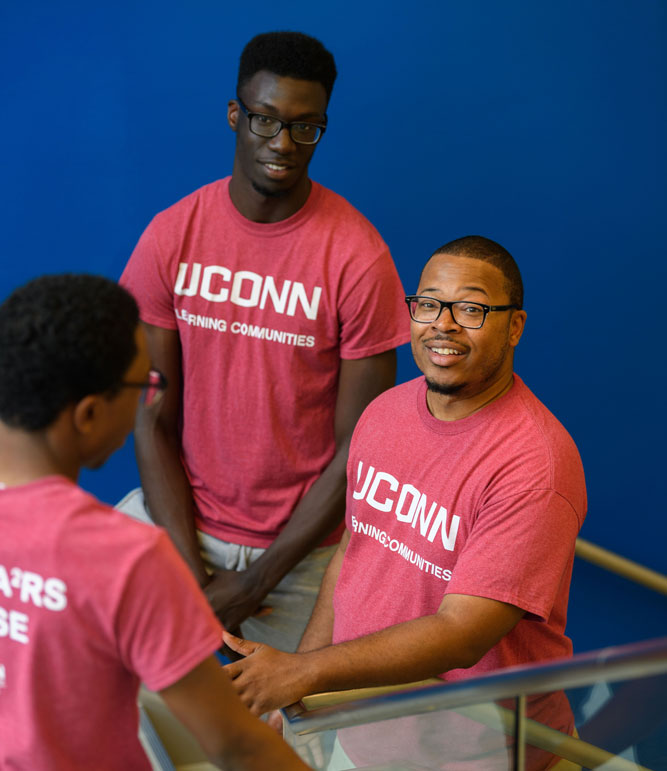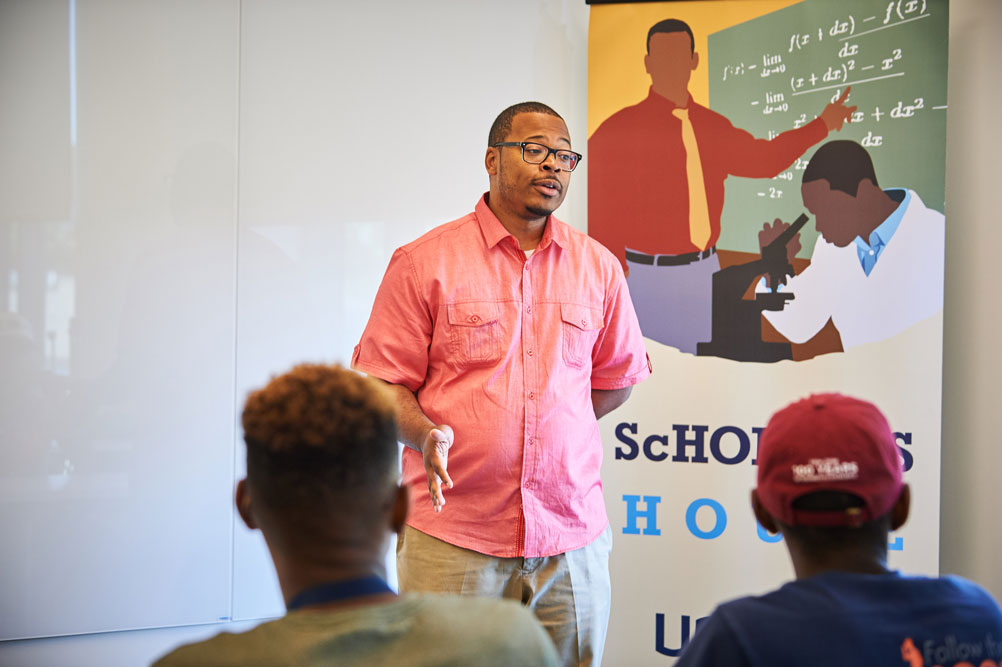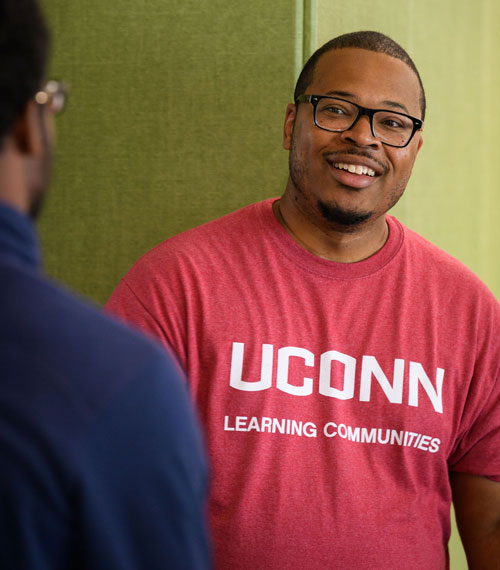Staying in College to Help Others Graduate
Mentors and guidance counselors helped Erik Hines, an assistant professor of educational psychology, find his path. Now he is paying it forward.
by Julie (Stagis) Bartucca ’10 (BUS, CLAS)
photos by Peter Morenus
“All I think about now is solutions for improving the graduation rate for black males.”
Erik Hines is passionate about helping black male students succeed at UConn. The assistant professor in the Neag School of Education says he is on a mission to help attract and retain African-American male students.
As faculty director of the new learning community ScHOLA²RS House, Hines hopes to gain a deeper understanding of the variables that influence positive academic and career outcomes for black males, the subject at the heart of both his day-to-day counseling work and his academic research. (ScHOLA²RS stands for Scholastic House of Leaders in Support of African-American Researchers & Scholars).
“He is all in,” says Sally Reis, the former associate provost who brought Hines in to work on the newest of the University’s learning communities. “He is completely dedicated to these young men, focused on their graduation from UConn and their success in graduate school and work. He is passionate, committed, and a remarkably strong mentor.”
Born and raised in Tampa, Hines decided to become a school counselor while attending community college there. He went on to earn his bachelor’s in social science education at Florida State University, his master’s in education for school counseling at the College of William & Mary, and his Ph.D. in counselor education at the University of Maryland. He joined the UConn faculty in August 2014.
Hines says he is doing the work he set out to do at age 19. “My career feels purposeful, fulfilling, and empowering. All I think about now is solutions for improving the graduation rate for black males, recruitment of black males in STEM and career fields in which they are underrepresented, and how we help first-generation and other vulnerable populations be successful, too.”
We caught up with Hines over the summer in his Gentry Building office, which overlooks a grassy, tree-lined knoll next to The Benton.

“We want to cultivate all of our students to be the best and brightest.”


Leave a Reply